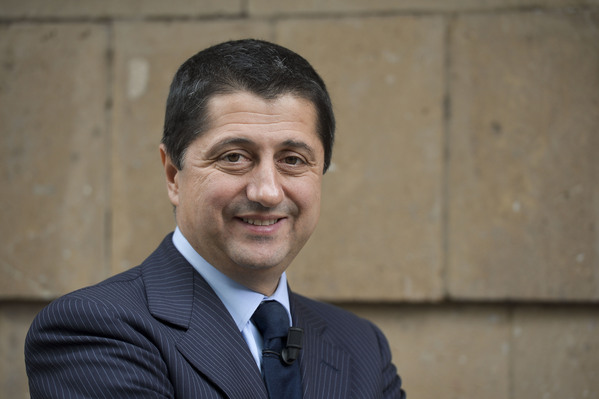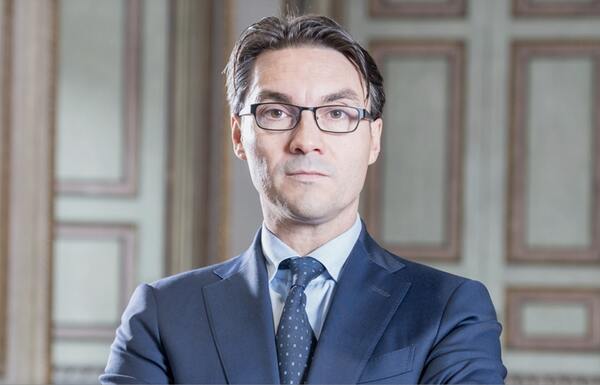
“Investing in beautiful Italian companies is a good investment. Investing in Italian fintech companies, especially in those that already have a structure and are open to change, is an excellent investment”, Maurizio Tamagnini, ceo of the largest corporate fund dedicated to Italy and the third growth fund in Europe, said in an interview with MF Milano Finanza signed by Stefania Peveraro, editor-in-chief of BeBeez. In fact, this type of fintech is an excellent investment is clear by numbers.
FSI, alone in four years since its launch, has invested 600 million euros in fintech, which today corresponds to an Irr in line with the so-called top quartile of international buyout funds raised in the last 5 years, that is, according to Preqin, over 20 % per year. The 600 million represent approximately 50% of the total value of the investments made so far by the Tamagnini-led fund flanked by the Barnaba Ravanne, with whom Tamagnini co-founded FSI and has been working for more than 20 years. In March 2019, the fund closed the fundraising with 1.4 billion euros of commitments by Italian and international institutional investors, as well as by sovereign funds. Below is the text of the interview.
Question. When we talk about fintech, we usually think of startup and scaleup companies who have invented new business models, which are financed by venture capital operators. This market, according to BeBeez‘s calculations, raised 900 million euros in 2021 after only 247 millions in 2020 (see here BeBeez‘s 2021 Fintech Report, available to subscribers to BeBeez News Premium and BeBeez Private Data). But the fintech companies in which FSI invests are different and have much more important dimensions. FSI is the largest Italian investor in fintech. Why do you believe so much in this industry?

Answer. Because it is a driving investment for the country’s economy. We know that Italy is still far behind in terms of business digitization, our ratio between IT investments and GDP is the lowest in Europe and there is therefore a huge opportunity to be seized. This is why FSI has structured itself with a team specifically focused on tech led by Barnaba Ravanne.
Q. In fact, you now have a solid track record in the industry. And only in the last year have you completed two investments and a reinvestment. What is the logic you adopt to be able to have those results?
A. We always work with a three-phase approach: first we identify the company that represents the most promising development platform in its sector and enter the capital without burdening it with debt, to leave it free to invest then for growth. Then we support it in this growth, first at a domestic level and then at an international level. Finally, we are looking for a large strategic partner able to make them make a further leap in development and we try to remain part of this further development, reinvesting in the new reality. We did it with Cedacri, the group specializing in banking software and cloud services where we invested in 2018, supporting the shareholder banks in the capital, thus helping them to rationalize governance and hiring Corrado Sciolla, a highly experienced ceo who then operated a profound transformation of the company. Over time we have supported the group in developing the business also towards non-captive customers and we have conducted two other acquisitions, that of Oasi and that of Cad.It, to expand the business to software. After that last year we identified as a partner with whom to continue the adventure ION Investment Group, the global technology provider of the financial sector, founded more than 20 years ago by the Italian entrepreneur Andrea Pignataro. ION then bought the entire Cedacri, valued at 1.5 billion euros, and we reinvested in a minority.
Q. Will you take the same path with your latest investment, BCC Pay?
R. The goal is that and I am pleased that the company has remained Italian-owned. With Mauro Pastore, general manager of Iccrea, we shared an industrial project that starts from a platform that only the Iccrea group works today, but that will go much further: the idea is to create new services for the Iccrea group, but also to be attractive for other small and medium-sized banks. As in Cedacri, we found excellent skills in the team led by ceo Fabio Pugini in BCC Pay. Also in this case our investment horizon is medium to long term.
D. Returning to the topic of strategic partners, ION will also be your partner in your next investment in Cerved, since you have signed a loan commitment of 150 million euros in one of the companies in the control chain of the business information and credit management group just delisted in a follow-up to the takeover bid launched by ION. At what point is the operation?
A. As far as we are concerned, we assume that it may still take some time. But it is obviously an extremely interesting project and Pignataro is a visionary entrepreneur, who will lead both Cerved and Cedacri to play a high-level role in Europe.
Q. Many major Italian fintech players have been promoted by consortia of banks, a capital structure that cannot be efficient today if it is to remain competitive internationally. How do you manage these situations?
A. We learned that long ago. We have decades of experience in the sector, since the FSI team is actually the same one that once worked for the Fondo Strategico Italiano owned by Cdp group. In 2013 we invested in SIA, the leader in payment services and infrastructures, which, thanks to the support of Cdp Equity, is now marrying with the paytech Milan-listed Nexi, which in turn has merged with the Danish group Nets and the group will become the largest pan-European paytech platform. When we joined SIA, the capital was also in the hands of a large group of banks in that case. In the world of tech, innovation is continuous and decisions must be made in a very short time, which is why it is important that consortium companies have simple and effective corporate rules that allow them to implement transformative business plans. We have a privileged observation point on tech, as I am the president of ST Microelectronics, the European IT giant. And I tell you that Italian engineers and computer scientists are among the best in Europe, which is why we are so keen to discover Italian tech companies in which to invest.
Q. What will the next tech targets be?
A. We are looking at software platforms, in particular those of ERP (Enterprise Resource Planning) and management software for companies. To date, the most similar investment we have made is the one in Lynx, a system integrator specializing in technological solutions to support large companies in the utility sector, banks, insurance companies and the public administration. In essence, the company, led by two young entrepreneurs, Matteo and Federico Moretti, scouts technology where there are new frontiers, particularly in the United States and California. Lynx is a platform open to other Italian system integrators willing to share an important dimensional growth project. Just recently, for example, Lynx bought Tuscan InsuranceOnLIne (IOL), with the sales entrepreneurs being brought aboard the group.


